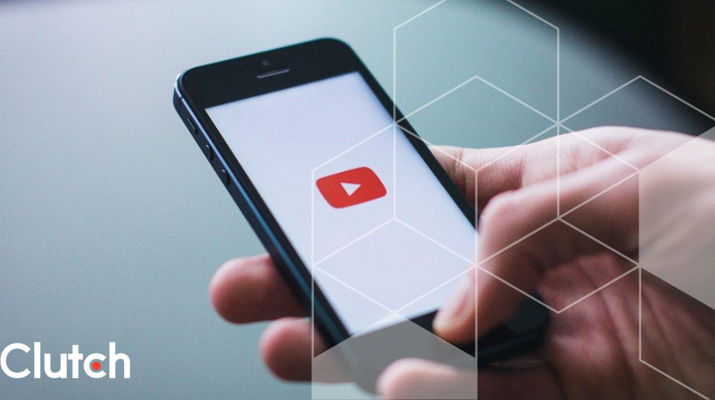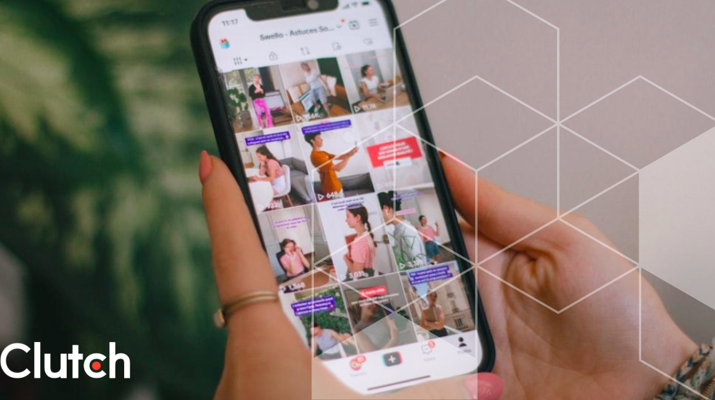

Updated December 9, 2025
From commercials to YouTube content, video has become one of the dominant forms of media. Discover how your business can use this trend with a compelling video marketing strategy, as told by Mandy McEwen, founder & CEO of Mod Girl Marketing.
If you’re spending more time watching videos lately, you’re not alone.
According to Statista, the amount of time Americans spend watching video content on digital devices has skyrocketed from 113 minutes per day in 2019 to 176 minutes in 2023 — a staggering 55% increase.
Looking for a Video Production agency?
Compare our list of top Video Production companies near you
Of course, watching online videos isn’t a new phenomenon. This content has always been cool, even during the earliest days of social media. You may remember watching classic videos like Star Wars Kid — which went viral before the invention of YouTube — or the outrageously catchy Potter Puppet Pals. Visual content naturally draws audiences in, especially when it’s paired with great music and storytelling.
This long-lasting appeal has made video a powerful promotional tool for businesses. Over 93% of marketers report that video marketing gives them a good return on investment (ROI), and 96% believe it boosts brand awareness.
Mandy McEwen, founder & CEO of Mod Girl Marketing, explores the benefits of adding video to your marketing strategy.
According to a 2022 survey, 45% of marketers rank video as their top-performing type of content, followed by short-form articles (31%) and success stories (28%). While each format has its place in marketing, video has an edge over static or text-based content for several reasons.
“Back when social media was just starting, video was seen as a cool but difficult extra. Even then, it stood out, especially in B2C,” states McEwan.
McEwan stresses how videos have always been impactful.
“Video is the best way to stand out, differentiate yourself, and build emotional connections with followers and buyers quicker than anything else can accomplish.”
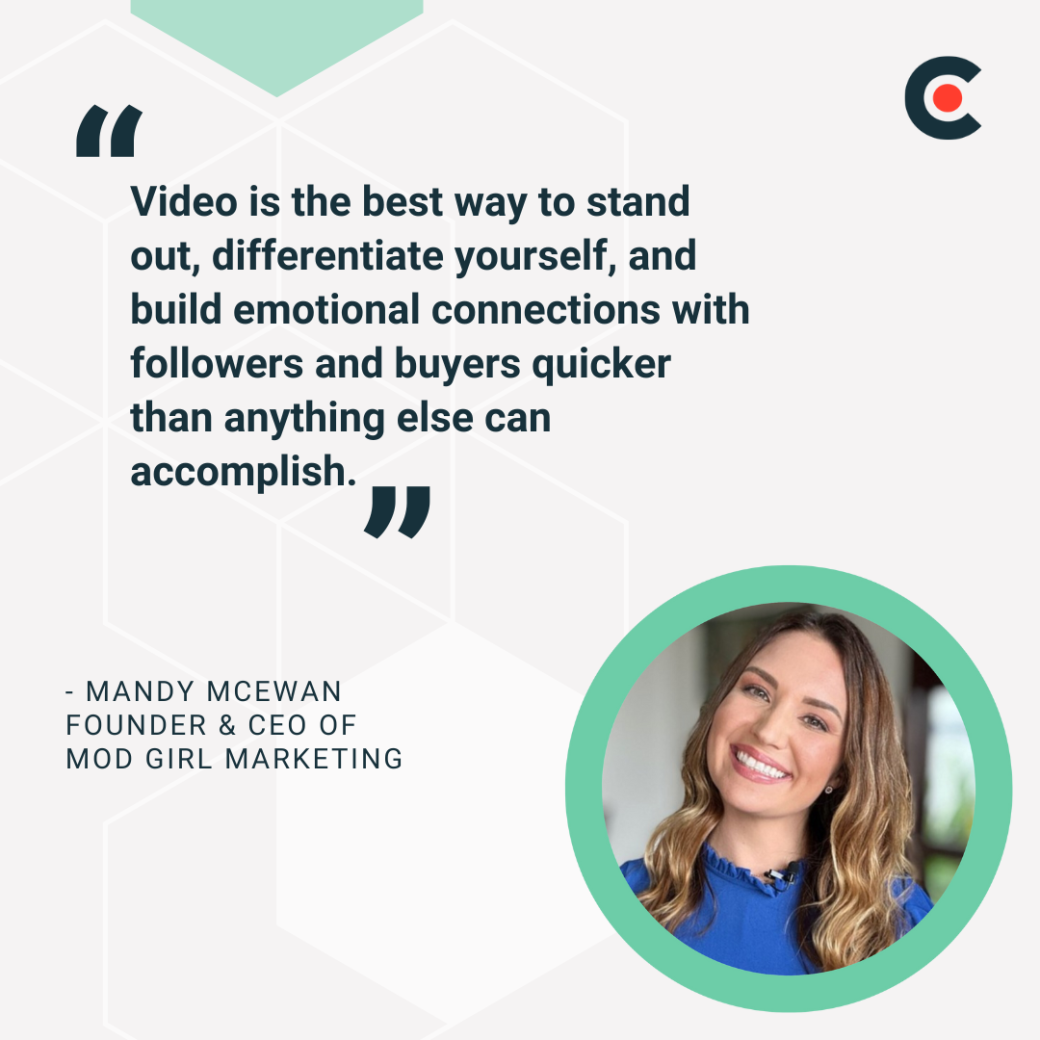
Here are 5 key reasons why videos are great for making a splash:
The visual nature of videos makes them perfect for telling compelling and memorable stories. By blending visual elements — such as imagery, motion, and symbolism — these narratives deliver messages much faster than text alone.
For example, Nike’s What If You Can? commercial aims to empower viewers by showing alternating clips of girls going about their daily lives and excelling in sports.
As of January 2025, the video commercial garnered 37 million views, indicating how it reached and connected a broad audience because of its powerful messaging and enticing yet simple visuals.
While simply watching a video can engage viewers, businesses can use this format to offer even more immersive experiences. This might involve adding interactive features like quizzes or chat rooms.
Nespresso is one brand that has successfully used interactive videos to market its products. A recent ad lets customers choose which topics to explore and includes a quiz to help them find their ideal Vertuo coffee.
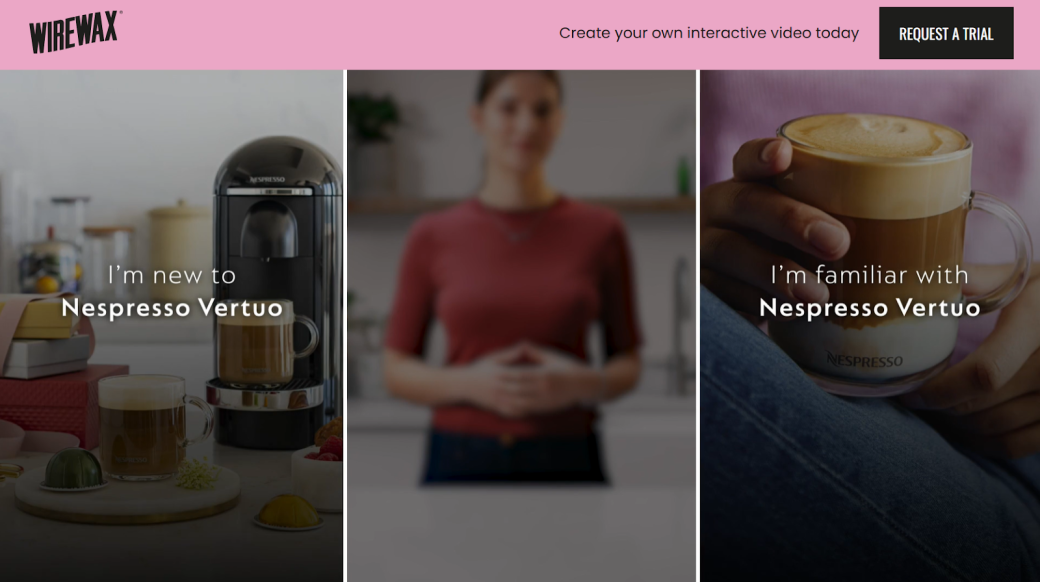
The interactive video gives audiences a more personal and involved experience with the brand, engaging with new and existing customers with its engaging appeal. Unlike traditional video ads, Nespresso’s interactive video is able to personalize the call-to-action (CTA) at the end of the video depending on the options selected by each customer.
Businesses often focus on attracting new customers, but maintaining relationships with existing clients is just as important. Increase retention by using video to deliver valuable and engaging content, such as how-to guides and product demos.
You can't go wrong with video if you’re looking for a versatile format. This flexible medium lets you create content of any length, from 10-second Instagram reels to hour-long documentaries. Plus, you can try out different art styles and genres, such as animation or live-action.
With the right music and visuals, video can stir deep emotions in even the most stoic viewers. For example, Teleflora’s The Power of Wishes ad that tells a heartwarming story of a young boy and his wish to see his father for the holidays.
McEwan says,“There's so much power in leveraging video - little things like the person on screen, their movements and expressions, the background audio, B-roll footage, stock footage. You can really build this emotional connection and vehicle for getting people to understand who we are at our core and how we can help.”
McEwan highlights, going into detail how videos help connect through emotions.
“Nothing else can accomplish that in such a deep way so quickly. It really is a way to connect with people that goes deeper and beyond what reading text on a screen can do,” says McEwan.
Videos are uniquely powerful because of their ability to immerse audiences, tapping into emotions that help them emotionally connect with the message.
Despite the proven effectiveness of videos, many businesses still struggle to fit this content into their marketing campaigns. This process can feel especially challenging if you’ve never used videos before, but don’t worry. These simple steps will help you find a place for this content.
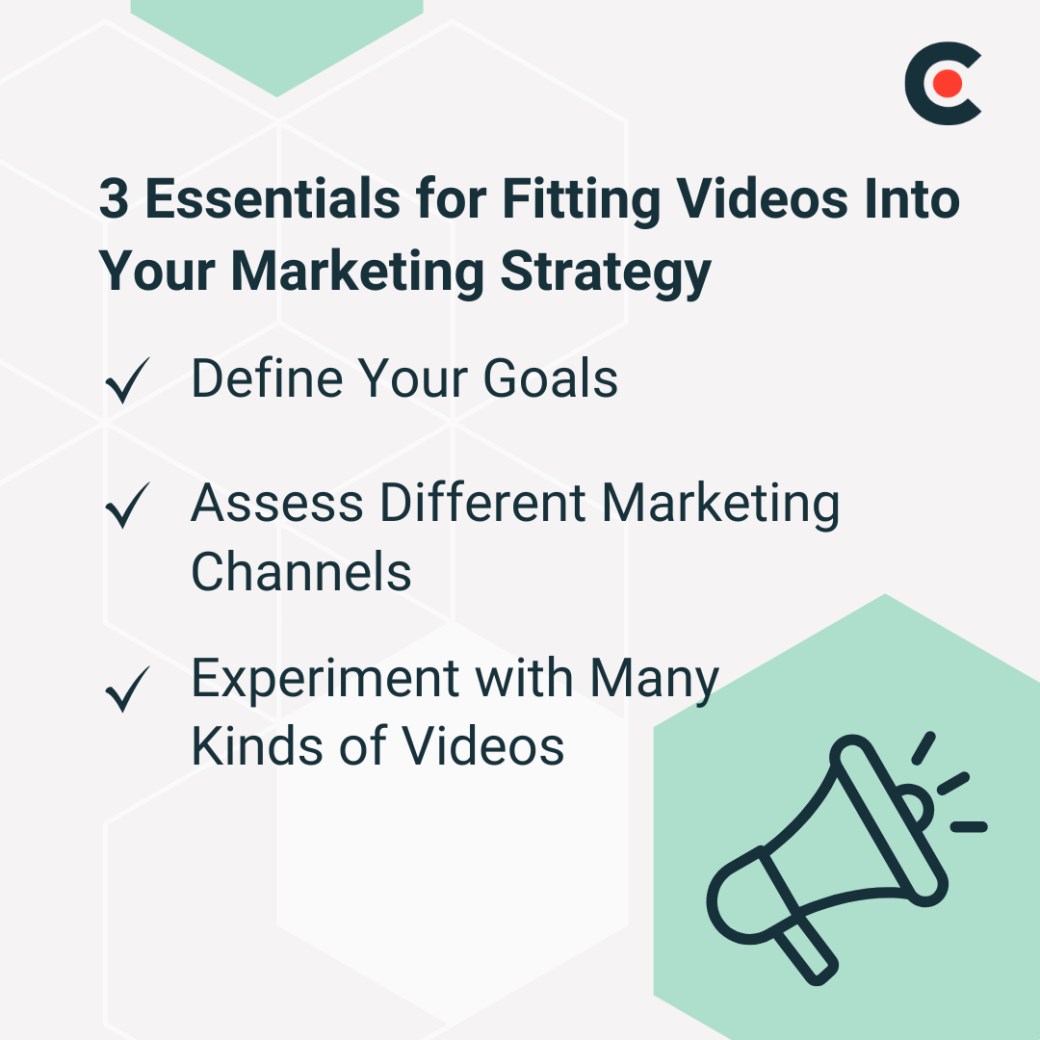
Establishing clear and specific marketing goals will help you decide which types of videos to create. Are you eager to boost brand awareness? Consider following in the footsteps of brands like Duolingo and Ryanair, which capture attention with quirky — and often downright bizarre — social media videos. If your goal is to boost sales, product demos or customer testimonials could help you get results.
While many users consume videos through social media, sharing your content is not the only way. You can also use video to connect with customers through these channels:
Review your current marketing efforts for opportunities to add video. For example, Polaris’s homepage features videos highlighting its off-road vehicles and snowmobiles. This content instantly grabs the visitor’s attention by showing the products in action.
While many customers enjoy watching videos, not all content resonates with every viewer. Creating different types of content will keep your marketing fresh and engage diverse audiences.
Develop short social media videos for customers who prefer to consume content in bite-sized amounts. For example, you could film a 30-second TikTok video with a behind-the-scenes look at your company or a quick product spotlight. This type of content is easy to produce fast, so you can start releasing regular videos and building your following.
You could also create longer testimonials to appeal to potential customers who are making purchase decisions. Meanwhile, loyal clients may prefer long-form explainer videos with industry insights.
Monitor the performance of these videos closely to determine which formats engage your audience most effectively. For instance, if longer tutorials receive only a handful of views, you might break them up into shorter clips or focus on a different type of content altogether.
Coming in behind India, the United States has the second-highest number of users at 238 million. This extensive reach makes it a must-have platform for businesses in all industries. Publishing high-quality videos on this popular channel can help you build credibility and reach new customers.
Consider your target audience's preferences and online habits when choosing the next platform to focus on.
For example, the Pew Research Center reports that 76% of people aged 18 to 29 use Instagram, compared to only 36% of those aged 50-64. Meanwhile, business professionals often use LinkedIn. You'll increase your chances of reaching the right people by tailoring your content and the platforms you share it on to your audience’s needs.
More than ever, customers are gravitating toward video for entertainment and shopping. An intentional and well-researched video strategy will help you connect with these customers and reach your goals. Clever methods, like repurposing videos for different channels, can also save you time.
Read through Mandy McEwen’s full insights on the importance of video production for digital marketing.

Mandy McEwen is the founder & CEO of Mod Girl Marketing, an award-winning social media consultancy, and Luminetics, a LinkedIn training company. She has been marketing successful brands online since 2007. Mandy has been named a Top 24 B2B Marketer by LinkedIn, Top 10 Marketer by DigitalMarketer, and listed in Search Engine Journal as a Top 12 SEO Expert. In addition to these distinctions, she has been featured in dozens of industry outlets including Inc., Huffington Post, and MAXIM magazine.

